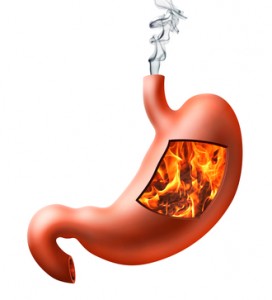 I saw another pleasant surprise in today’s Wall Street Journal: sales of diet sodas fell for the ninth straight year because more consumers are increasingly becoming wary of aspartame, the artificial sweetener used in diet sodas “despite decades of studies by the Food and Drug Administration and other government agencies”.
I saw another pleasant surprise in today’s Wall Street Journal: sales of diet sodas fell for the ninth straight year because more consumers are increasingly becoming wary of aspartame, the artificial sweetener used in diet sodas “despite decades of studies by the Food and Drug Administration and other government agencies”.
Some consumers are finally catching on to the fact that just because the FDA says it’s safe, doesn’t mean it really is. Perhaps they understand that the fox is guarding the henhouse and that these agencies often don’t look out for our best interests, as we would expect that they do.
Diet Soda and Aspartame
Aspartame, a genetically modified ingredient used as an artificial sweetener in diet sodas, converts to formaldehyde in the body and has been linked to migraines, fibromyalgia and even seizures. Formaldehyde is a carcinogen that’s used to embalm corpses. Wanna become one faster? Drink diet soda.
Recent studies have shown that people who drink diet soda typically fail to lose weight or worse, gain even more weight, because their metabolisms are tricked into storing fat by the sweet taste of aspartame. It’s not just a “calories in, calories out” equation because the biochemical reaction of our brain reacting to the sweet taste isn’t accounted for in the equation.
Don’t think you’re off the hook if you’re drinking regular, sugar-laden soda. Honestly, it’s a tough call as to which one is worse, but you can read more about my thoughts about it in the Dangers of Drinking Soda.

 I’d like to let everyone know that I am now offering my clients world-class probiotics from Klaire Labs and supplements from their parent company, ProThera.
I’d like to let everyone know that I am now offering my clients world-class probiotics from Klaire Labs and supplements from their parent company, ProThera. Nutritional deficiencies are rampant. I believe many people are falsely lulled into a sense of security by RDA (recommended daily allowances) listings on food and nutrients.
Nutritional deficiencies are rampant. I believe many people are falsely lulled into a sense of security by RDA (recommended daily allowances) listings on food and nutrients. Believe it or not, acid reflux medication dangers are real, and these medications do major harm to your body. Shocking, right?
Believe it or not, acid reflux medication dangers are real, and these medications do major harm to your body. Shocking, right? A few months ago, my then-6-year-old son had a definite change in his typically sweet personality for the worst.
A few months ago, my then-6-year-old son had a definite change in his typically sweet personality for the worst. Yet another study shows that C sections and feeding your baby formula instead of breastmilk can change your baby’s gut flora for the worse, leading to gut dysbiosis.
Yet another study shows that C sections and feeding your baby formula instead of breastmilk can change your baby’s gut flora for the worse, leading to gut dysbiosis. Methylation is a subject that keeps coming up again and again for my sons and myself. It’s one of those all-encompassing issues like toxicity or gut dysbiosis because so many diseases and conditions are linked, directly or indirectly, to it or rather, a lack of it.
Methylation is a subject that keeps coming up again and again for my sons and myself. It’s one of those all-encompassing issues like toxicity or gut dysbiosis because so many diseases and conditions are linked, directly or indirectly, to it or rather, a lack of it. Did you know that gut dysbiosis, which means there are too many pathogens outnumbering probiotic bacteria, is linked to autism, PDD-NOS, ADHD, allergies, asthma, sensory processing disorder, colic, eczema, IBS and autoimmune diseases like lupus, fibromyalgia and rheumatoid arthritis?
Did you know that gut dysbiosis, which means there are too many pathogens outnumbering probiotic bacteria, is linked to autism, PDD-NOS, ADHD, allergies, asthma, sensory processing disorder, colic, eczema, IBS and autoimmune diseases like lupus, fibromyalgia and rheumatoid arthritis?

